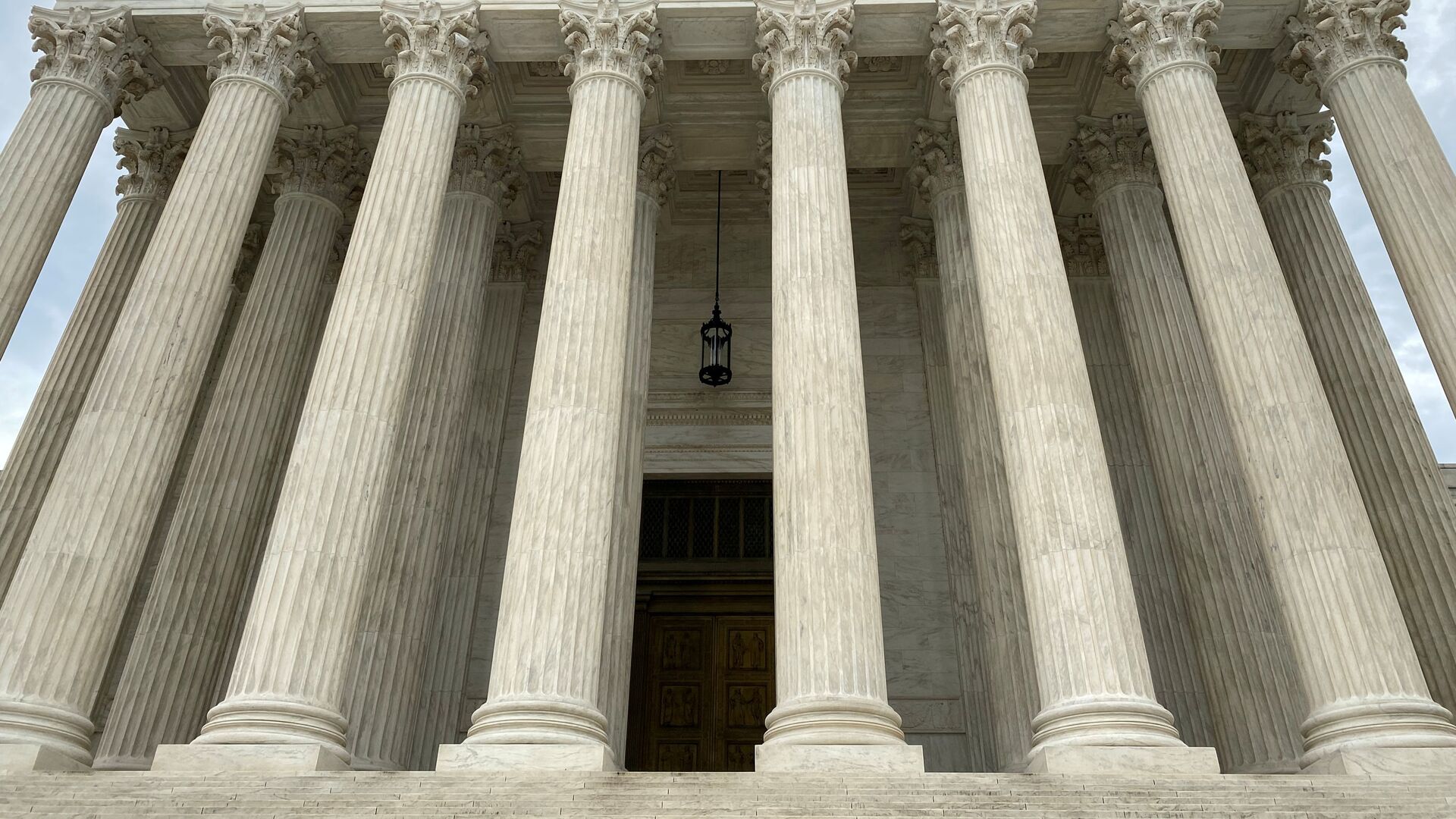US Supreme Court Strikes Down Part of New York State's Ban on Evictions During Pandemic
23:18 GMT 12.08.2021 (Updated: 00:38 GMT 13.08.2021)

© REUTERS / Will Dunham
Subscribe
In addition to roughly 11 million Americans behind on rent due to pandemic-related financial issues, another 1.75 million homeowners are also behind on their mortgages, threatening a tsunami of evictions once federal protections are lifted.
The US Supreme Court struck down part of New York state's ban on tenant evictions during the COVID-19 pandemic less than three weeks before it was due to expire.
The highest US court issued an injunction blocking part of New York's eviction ban, the COVID–19 Emergency Eviction and Foreclosure Prevention Act of 2020 (CEEFPA), that had been challenged in June by a petitioning group of New York landlords. The enjoined part of the law allowed tenants to self-certify that they were suffering from financial hardship during the pandemic, meaning they will now have to seek court approval of their hardship claims in order to successfully block an eviction under New York law.
CEEFPA is already set to expire on August 31.
The law was passed separately and in addition to the nationwide ban issued by the US Centers for Disease Control and Prevention (CDC). While the CDC's new ban issued earlier this month has been challenged in a DC federal court, that court has not yet ruled, so for the moment, the New York landlords who petitioned the Supreme Court are not yet able to begin removing tenants behind on their rent.
The ruling was 6-3, with liberal justices Sonia Sotomayor, Elena Kagan, and Stephen Breyer dissenting against the conservative majority. The trio disagreed that the New York law violates landlords' right to due process of law by denying them the right to challenge their tenant's claim of financial hardship in court, arguing rather that it delays that right but doesn't deprive them of it. The justices also disagreed that a requirement to provide factual information to tenants amounted to compelled speech, which would be a violation of free speech, or that the landlords had even demonstrated sufficient hardship as to require the high court's intervention.
"While applicants correctly point out that there are landlords who suffer hardship, we must balance against the landlords’ hardship the hardship to New York tenants who have relied on CEEFPA’s protections and will now be forced to face eviction proceedings earlier than expected," Breyer wrote in the dissenting opinion.
"This is troubling because, as noted, New York is in the process of distributing over $2 billion in federal assistance that will help tenants affected by the pandemic avoid eviction ... Ending CEEFPA’s protections early may lead to unnecessary evictions. It is impossible - especially on the abbreviated schedule of an application for an emergency injunction - to know whether more hardship will result from leaving CEEFPA in place or from barring its enforcement," he added.
Last week, Albany lawmakers moved to extend the moratorium another two months, until October 31, in the face of rapidly expanding numbers of COVID-19 cases as the virus' Delta variant sweeps the country. The Empire State has only distributed a small amount of the roughly $2.7 billion set aside for emergency rental assistance, and the lawmakers argued the government needed more time to get the money into tenants' hands. However, it is only enough to cover the needs of 200,000 families.
According to the New York Times, more than 500,000 households in New York City alone - a city of 8.1 million - are behind on their rent, and more than 62,000 evictions have been filed in the city since the pandemic began in March 2020, with between 400 and 800 new evictions being filed every week.
Nationwide, an estimated 11 million Americans are behind on their rent, being protected from eviction by the federal eviction ban or by state bans similar to New York's, with estimates of their collective rent owed totaling between $60 billion and $73 billion. The US federal government has appropriated some $46 billion in emergency rental assistance. However, like New York state's government, it has only distributed a tiny fraction of the funds.



